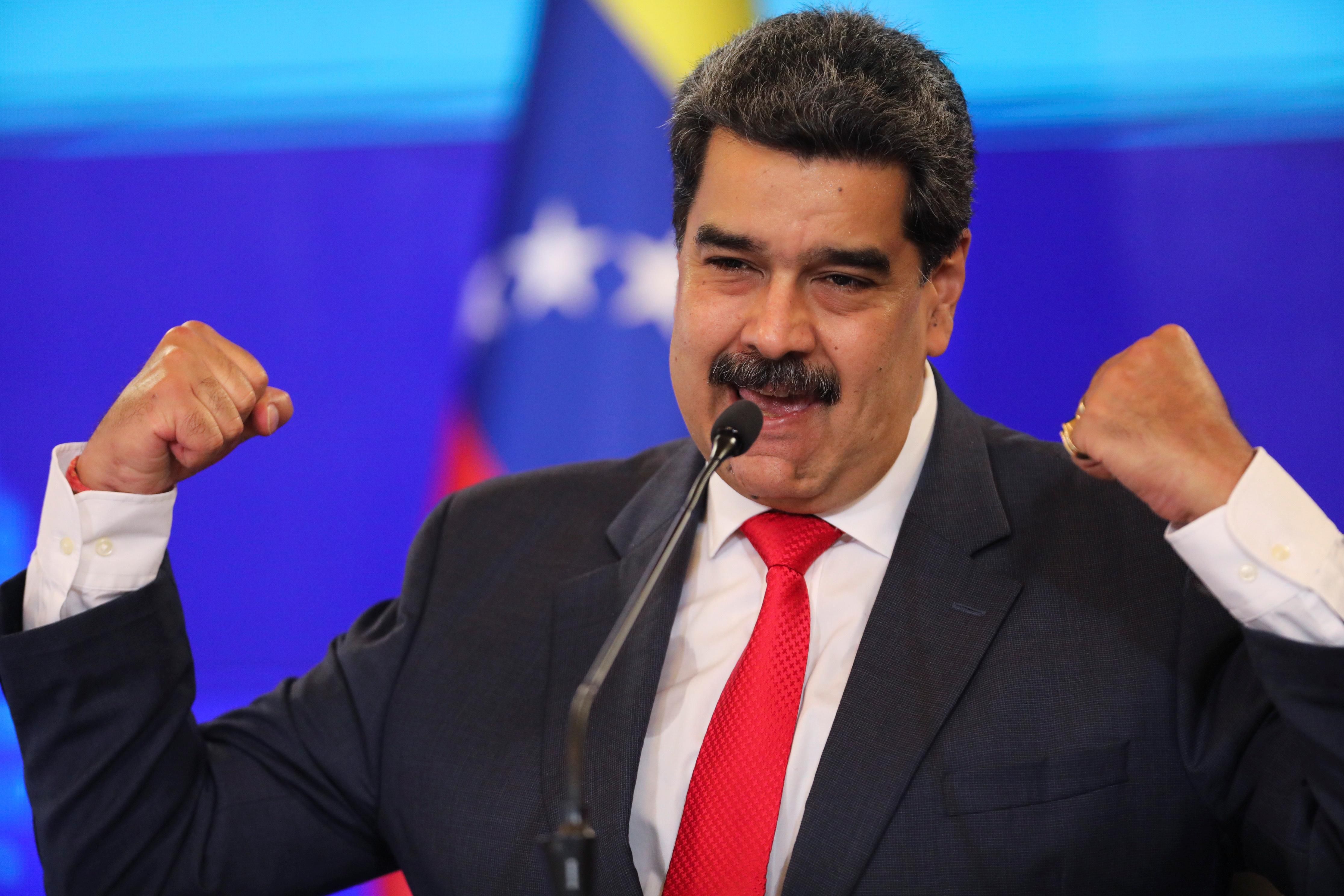You'd think that when a country suffers the worst peacetime economic collapse in modern history or generates the world's second largest refugee crisis, it would stay in the news for a while.
Not so with Venezuela, which, for all its struggles over the past three years, has fallen from global headlines.
Now's a good time to take a fresh look at this story, because later this week, the government of Nicolás Maduro will sit down with the opposition, still led nominally by "interim president" Juan Guaidó, to negotiate a path forward after nearly four years of political and economic crisis.
Items on the agenda include the negotiated release of political prisoners, a path to free and fair gubernatorial elections this fall, and ways to collaborate on bringing humanitarian aid to Venezuela's suffering people.
After similar talks collapsed almost immediately in 2019, these new negotiations — hosted by Mexico and brokered by Norway — are likely the last, best chance for any kind of negotiated solution at all.
But the balance of power between the two sides is skewed in one direction. Heavily.
Maduro's team will show up feeling good. Four years ago, hundreds of thousands were in the streets protesting his government's political repression and economic incompetence, millions were fleeing abroad, the US had imposed crippling economic sanctions and was even hinting at an invasion, while dozens of countries recognized opposition leader Juan Guaidó as the rightful leader of the country.
And yet, here Maduro is. He kept his military cronies on side, exploited divisions among the opposition to take even more power in elections last year, and got just enough help from outside friends like Cuba, Russia, Iran, and China to weather the storm. With leftist friends back in power in Peru, Argentina, and Bolivia — and possibly even Colombia next year — Maduro is now in a commanding position. Most of Guaidó's outside backers have abandoned him.
Still, Maduro has a big problem: his economy remains in ruins, and US financial and oil-sector sanctions certainly aren't helping. Maduro wants to win some sanctions relief, and he wants something else related to that, says Eurasia Group Venezuela expert Risa Grais-Targow: recognition. Dropping the de facto fiction of Juan Guaidó's presidency would help Maduro to attract more investment and access overseas cash reserves more easily.
The US, along with the EU and Canada, has signaled that some incremental sanctions relief — like allowing certain fuels to enter the country more easily again — could be on the table if Maduro makes a few credible concessions to the opposition this weekend. He has already released some key political prisoners as a show of good faith.
The opposition, meanwhile, shows up with head(s) bowed. Their bid to topple the Chavista government has failed. They gained some foreign support, most notably from the US and Europe, but they failed to sustain pressure in the streets at home. And boycotting last year's legislative elections, crooked as they were, also backfired: it allowed Maduro to take more power in the National Assembly, while letting pass a great opportunity to build durable local campaign networks.
There's a silver lining in this reckoning, though. A change of tack could lay the groundwork for a more sustainable and realistic — if longer-term — push for power. On Wednesday, the opposition announced that they will, in fact, participate in the upcoming gubernatorial elections this fall. And from Maduro's perspective, that's probably fine, especially if it pleases the Americans. Worst case is that the opposition wins a few governorships — but he would still control the presidency, the legislature, and the courts.
The longer-term questions remain: Would Maduro be willing to allow free and fair elections at the national level — say for the legislature or presidency? Will the opposition seek to unseat Maduro in a recall referendum that they have the right to call for next year?
But in the short term, there is a lesson. "You just can't will a different government into being," Grais-Targow says of international efforts to back Guaidó. Where opposition leaders and their foreign supporters miscalculated is in underestimating how risky it was for regime cronies to actually defect. We've seen that mistake elsewhere: in Syria, where a decade of war and sanctions failed to peel away Bashar al-Assad's generals, and in Russia, where foreign sanctions over the annexation of Crimea ended up binding Putin's oligarchs even more closely to the Kremlin.
Of course, caught in the middle of all this, still, are the Venezuelan people, who have lived in crisis for almost a decade now. Small wonder that neither Maduro nor Guaidó has the support of more than 15-20 percent of the population. Both sides have an interest in changing that — can they? The Mexico City talks would be a good place to start.
